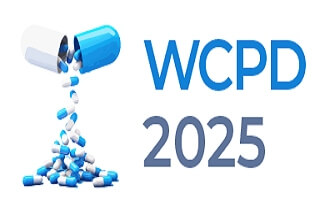2nd World Congress on
Pharmaceutical Chemistry and Drug Development
October 09-10, 2025 | Online
WCPD 2025

Ministry of Health, Sudan
Abstract:
Abstract: The strategy of price liberalisation and
privatisation had been implemented in Sudan over the last decade, and has
had a positive result on government deficit. The investment law approved
recently has good statements and rules on the above strategy in particular to
pharmacy regulations. Under the
pressure of the new privatisation policy, the government introduced radical
changes in the pharmacy regulations. To improve the effectiveness of the public
pharmacy, resources should be switched towards areas of need, reducing
inequalities and promoting better health conditions. Medicines are
financed either through cost sharing or full private. The role of the private
services is significant. A review of reform of financing medicines in Sudan is given
in this article. Also, it highlights the current drug supply system in the
public sector, which is currently responsibility of the Central Medical
Supplies Public Corporation (CMS). In Sudan, the researchers did not
identify any rigorous evaluations or quantitative studies about the impact of
drug regulations on the quality of medicines and how to protect public health
against counterfeit or low quality medicines, although it is practically
possible. However, the regulations must be continually evaluated to ensure the
public health is protected against by marketing high quality medicines rather
than commercial interests, and the drug companies are held accountable for
their conducts.
The CMS
reform is stronger today than it was in the early 1990s when the reforms were
started. There are many highly committed and able individuals throughout the
public sector in the absence of the single-minded pursuit of commercial
success. Also, in the long-term interest of employment growth and the public at
large, narrower concerns have prevailed. Managements and boards are less able
and less willing to impose accountability for results on themselves and their
employees. Stock-out of life saving items is common, and sanctions for
non-performance are often absent altogether. To overcome those common symptoms
of all public owned enterprise, and achieve the strategic objectives of the
FMOH by increasing the access of population to the essential medicines. The
privatisation of the CMS’s ownership is the best solution of choice. By
resurrecting competition, which could be achieved mainly through privatisation
of the CMS ownership, many of the mentioned pitfalls can be avoided. The new
business should be responsible (of course without any kind of monopoly) for
drug supply and distribution to the public health facilities on competition
basis. The initial capital of the drug stocks for the different health
facilities should be given by this new business by signing a clear agreement
with interested states’ ministries of health.
Biography:
Abdeen Mustafa Omer (BSc, MSc, PhD) is an associate researcher at Occupational Health Administration, Ministry of Health and Social Welfare, Khartoum, Sudan. He has been listed in the book WHO’S WHO in the World 2005, 2006, 2007 and 2010. He has published over 300 papers in peer-reviewed journals, 200 review articles, 7 books and 150 chapters in books.
